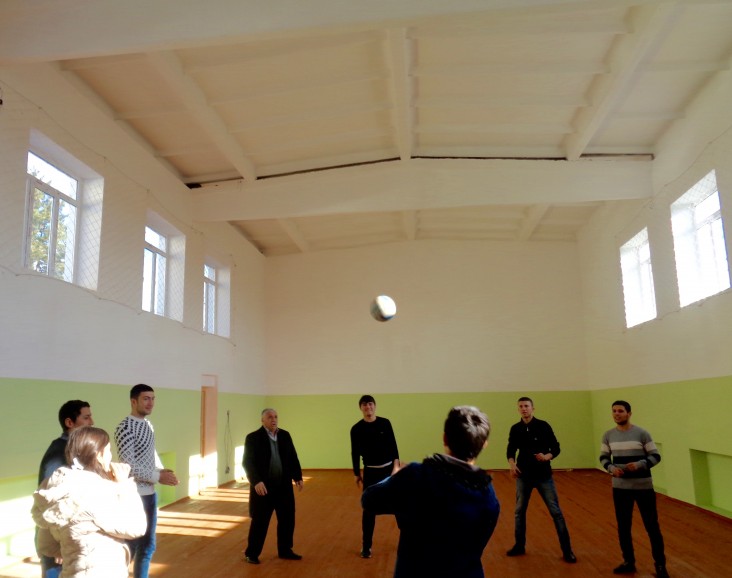
Mukhrana Village is a small settlement of 500 ethnic Azeri households located in East Georgia’s Bolnisi Municipality. For years, the local school’s gymnasium was in such poor condition that it could not be used. Thanks to a group of 10th grade students, young people are now using their fully rehabilitated gym for a series of activities promoting a healthy lifestyle.
In 2014, the Mukhrana Village School became one of 480 schools throughout Georgia to take part in USAID’s Momavlis Taoba (“Future Generation”) program, which works to strengthen civic education and encourage students to organize and implement projects that will make a difference in their schools and communities.
The young people from Mukhrana decided to advocate for the rehabilitation of their gymnasium by first entering a video contest, sponsored by Momavlis Taoba. Their short film won second place in the category, “Healthy Lifestyle for Youth.” When the Head of the Bolnisi Education Resource Center saw their video at the awards ceremony, she pledged her support for their initiative. With her encouragement, the students and their principal sent a letter to the Ministry of Education and Science of Georgia. The Ministry responded by rehabilitating the facility.
“After being involved in the activities of the Momavlis Taoba program, students became more active,” shares Ms. Nestan Oniani, Principal of Mukhrana Village School. After this successful initiative, when they saw the concrete results of solving an existing problem, they became self-confident and now feel that they can make positive changes in their community. They also became role models for all the students of the schools. Based on this experience, they are now actively planning future activities. This is all a result of civic education.”
--Momavlis Taoba is funded by USAID and implemented by Project Harmony International. The project works in partnership with the Ministry of Education and Science of Georgia, the Center for Training and Consultancy, the National Civics Teachers’ Forum, and 11 regional NGO partners to strengthen civic education in high schools throughout Georgia. By November 2017, USAID will have supported the introduction of modern civic education curricula in a total of 50% of Georgia’s high schools.







Comment
Make a general inquiry or suggest an improvement.